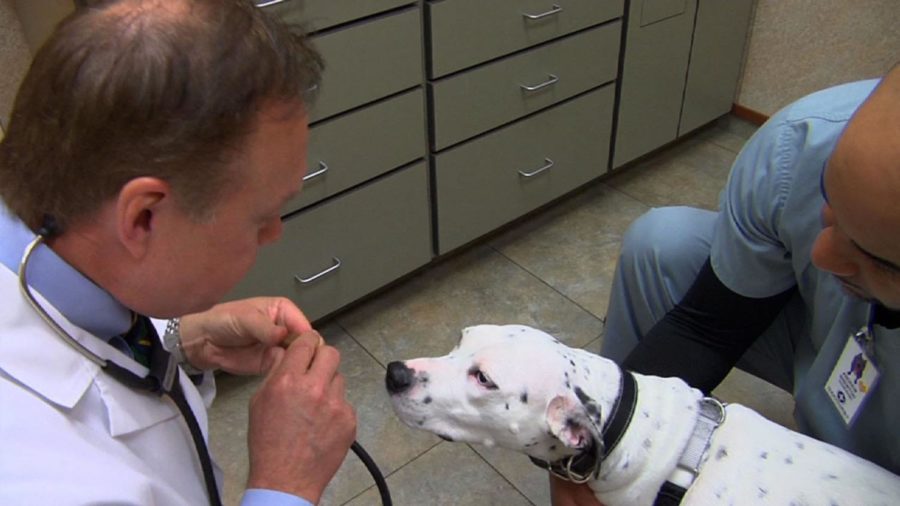ISU vet believes Iowa could be next victim of recent dog flu outbreak
April 7, 2016
A dog flu outbreak has recently struck Chicago, and some experts believe Iowa could be next.
Dr. Bryce Kibbel of Iowa State’s College of Veterinary Medicine said the last time Iowa was hit with canine influenza, or dog flu as it is more commonly referred to as, was March 2015. Although no cases have been reported in Iowa since the outbreak in Chicago, Kibbel believes there is a high possibility of this disease crossing over the border of Illinois and Iowa.
“I think eventually it’s going to get here,” Kibbel said. “Just the way people travel with their pets, I think it’s just a matter of time.”
When this disease hit Chicago in 2015, more than 1,700 dogs were affected, according to CBS News. The recent outbreak has claimed about 150 pups as of March 25.
“Dogs can contract the disease by nose to nose contact, through nasal fluid or breathing the same air,” Kibbel said. “Basically through the air or direct contact.”
The virus is most commonly spread between dogs, but a small percentage of cats have contracted the disease. Cats with this disease tend to have a much harder time recovering than dogs, however. A very small percentage of infected dogs gets very sick or faces death, Kibbel said.
Although canine influenza was reported in Iowa in March 2015, it has not hit Iowa during this round of infections. Kibbel said it is important for owners to know what symptoms to look for in their dogs. He compared symptoms of dog flu to symptoms of the human virus dealt with every year.
If your dog is coughing, has a lack of appetite, watery eyes, low energy or a fever, it could possibly be infected with the illness. Most dogs recover within a few weeks, but the disease can be fatal in a small percentage, Kibbel added.
Kibbel said there is not currently a specific vaccine for the disease and there are no anti-viral medications recommended for the canine disease. Medications are available, but many clinics, including Iowa State’s small animal hospital, are not offering them yet.
Kibbel said he expects people will start using these medications more in the future.
Iowa State’s diagnostic lab created a test to detect the disease, and it is ready for use if needed.
“We’re looking at being vigilant looking for it,” Kibbel said. “The sooner we know about it, the faster that we can change our vaccine protocols and ideas about keeping these dogs from getting other dogs sick.”
Kibbel recommends keeping dogs safe by talking to their vet about the canine influenza vaccine and watching for warning signs in their dogs.







